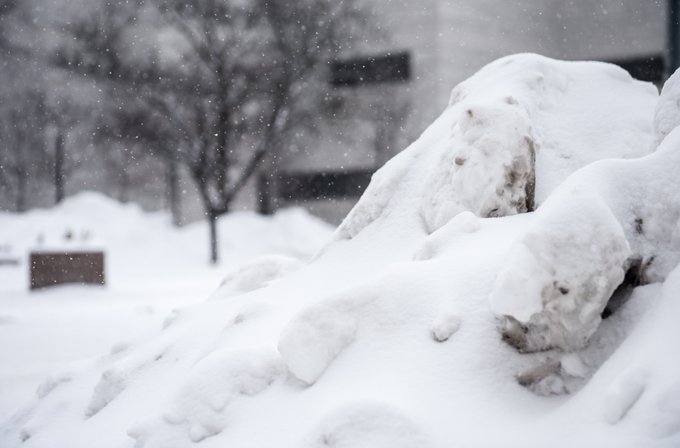Exposure to cold temperatures can cause serious or life-threatening health risks. The City has strengthened its extreme cold weather response plan involving multiple departments and community partners. The goal is to provide information and resources to those who are the highest risk of the harmful health impacts due to the extreme cold.
When Environment and Climate Change Canada forecasts windchill or temperatures that pose an increased risk of frostbite, the City takes several steps to alert community partners and at-risk residents of available services, including places throughout the city were people are welcome to go to warm up.
How to stay in the loop
Ottawa Public Health (OPH), with support from the City, will release communications to help residents stay safe during cold weather. You can get up-to-date information on OPH’s Facebook(link is external), X (formerly Twitter)(link is external) and Instagram(link is external).
To receive weather notifications straight to your mobile device, Environment and Climate Change Canada has the WeatherCAN app(link is external) that can be downloaded.
You can also visit OPH’s Cold Weather(link is external) webpage for regularly updated information and resources, including who you can call for assistance, overnight shelter locations and where to find places to warm up.
Resources for those experiencing homelessness
The City works closely with its community partners to ensure that those experiencing homelessness have access to safe and warm shelters during extreme cold. Winter gear, including sleeping bags, additional blankets, clothing and handwarmers, are available for those who choose to remain outside during an extreme cold weather event. These are provided by the City through its outreach services and community partners.
The Salvation Army Ottawa Booth Centre operates a Mobile Outreach Van(link is external) and responds to calls made to the City's 3-1-1 Call Line. They encourage people to seek warm indoor locations and can transport them to an emergency or overnight shelter. In addition, they also provide warm clothing and other resources to those who might refuse shelter.
Anyone who is unsheltered can access services at any time by calling 3-1-1 or presenting themselves at a shelter. You can locate a shelter near you on OPH’s cold weather(link is external) webpage. You can also call 2-1-1 to obtain information about services and locations of drop-in centres, where to obtain winter clothing and more.
What’s to come
The City recognizes that both the family and singles shelter system have been operating over capacity for many years, and we are experiencing unprecedented levels of demand for services. Ottawa is also facing extreme and unpredictable weather. In a commitment to ensure that staff and partners have the resources needed to help keep our vulnerable population safe, the City is exploring additional measures.
Work is being done to expand day program operations to include an overnight respite option with basic accommodations. The Heron Road Physical Distancing-Emergency Overflow Centre was also recently opened to add additional shelter spaces for vulnerable residents.
Lastly, the City is exploring the use of more bunk beds at Physical Distancing-Emergency Overflow Centres to expand capacity. We are also working with community agencies that serve newcomers to identify additional supports and alternative placement options for refugee claimants.
Who to call for help
Call 3-1-1 to get referred to the best available shelter, or to get assistance for someone who needs transportation to get out of the cold.
Call 9-1-1 for medical emergency assistance such as hypothermia.



